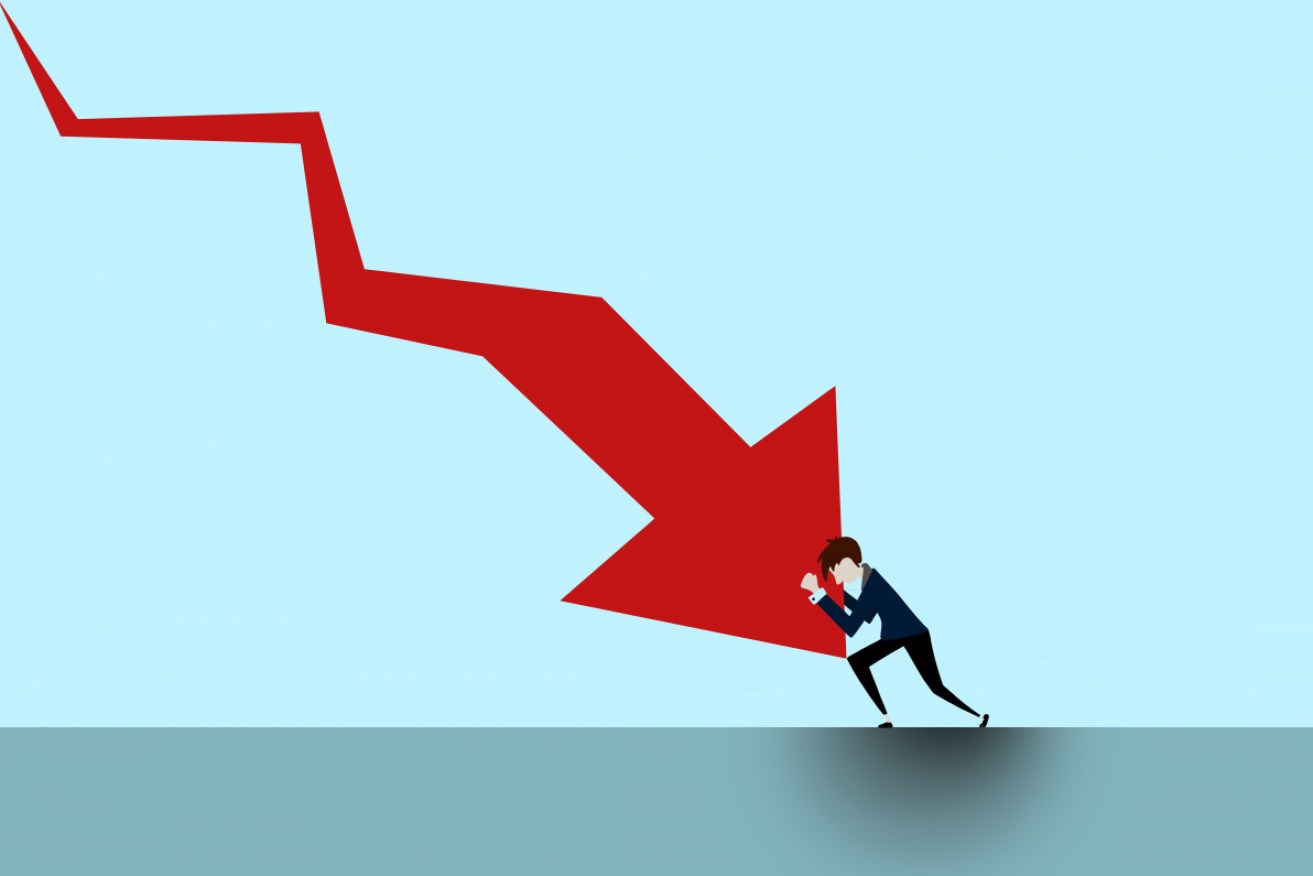How Australians can recession-proof their finances during the pandemic


Are we headed for recession? Photo: Getty
Australia is headed for its worst recession since the Great Depression, according to the International Monetary Fund (IMF).
The IMF’s 2020 World Economic Outlook predicts Australian GDP will decline 6.7 per cent this year before rebounding 6.1 per cent in 2021.
Its forecasts also suggest unemployment will average 7.6 per cent this year before worsening to 8.9 per cent over the following 12 months.
Australia’s last ‘technical recession’ – defined as two consecutive quarters of negative GDP growth – was almost 29 years ago, before the country embarked on a world-beating economic expansion.
The New Daily asked a number of financial planning experts how Australians can recession-proof themselves.
Figure out your ‘number’
Matthew Hawkins, director of Elevate Wealth Solutions, says Australians should determine their unique ‘number’ to ensure they live within their means.
Essentially, this is how much an individual or family requires to account for basic living expenses like water, electricity and food, without frivolous purchases like new cars or holidays.
Mr Hawkins says once that number is established, people can calculate their disposable income and build long-term plans to combat an economic downturn.
“Using things like the MoneySmart budget calculator enables you to put in all your expenses and help you understand the minimum amount you require to subsist,” Mr Hawkins said.

Sitting down and creating an adaptable budget can help families survive in the event of a sudden loss of income. Photo: Getty
Noall & Co managing director Marc Bineham believes that, if in a position to do so, Australians should set aside a safety net to cushion a sudden job loss.
“The average Australian has less than one month savings of income,” Mr Bineham said.
“So if the worst happens, they have a months’ savings to look after, which is definitely not near enough.
“They should have somewhere between three to six months worth of savings in a rainy day account.”
Remove any non-essential expenses
AMPD Research found the average household pays $35 per month for subscription video on demand (SVOD) services, while 2018 research by finder.com.au showed UberEats users spend $1590 annually on average.
Mr Hawkins said Australians struggle to comprehend just how much of their annual income is eaten up by direct debit services until they print their bank statements.
“Those luxury items like Spotify, Netflix, Stan and the like. These add up,” Mr Hawkins said.

Cutting out unnecessary items can quickly add up and help households save valuable dollars. Photo: Getty
“And reduce your expenses – so shop around so you can get better rates on loans, better prices on your home and contents insurance, better prices on health insurance.
“It’s amazing what little changes can have when they compound over four or five items over 12 months.”
If you’re experiencing hardship, talk
Australia’s last recession led to double-digit unemployment, and with growing reliance on the gig economy and casualised labour, more Australians could soon join unemployment queues.
Financial Counselling Australia CEO Fiona Guthrie told The New Daily Australians who find themselves out of a job should speak with creditors and financial counsellors sooner, rather than later.
“They (creditors) have a legal obligation – if you’re a bank or a telco or energy retailer – to offer a financial hardship provision,” Ms Guthrie said.
Tweet from @FCAupdate
“And you can talk to our helpline (1800 007 007) in terms of what not to do, because it’s so easy in the spur of the moment to click on a link and get a short-term, high-cost payday loan or buy-now-pay-later services.
“They’re just recipes for disaster, and people get trapped with ongoing debt.”
Have faith in your plan
Despite the recent turbulence in the Australian sharemarket, investment advisers say Australian investors should be focused on the long-term dividends of staying involved.
Multiforte director Kate McCallum said sharemarkets are an intersection of economics and emotion – and right now, emotion’s driving the market.

Australia’s stockmarket has experienced dramatic falls and gains in recent weeks. Photo: Getty
“Unfortunately markets are unpredictable, so it makes sense for us to say let’s sit in cash and wait until it’s more comfortable and invest again,” Ms McCallum said.
“But the price you pay for certainty is a very low return.
“So if you want the long-term returns that capital markets offer, you’ve got to weather the storm.
“Upticks happen almost as quickly as some of the downturns, so if you’re not invested and you miss that day, then that’s gone.”








